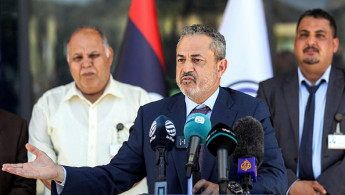Oil production to revive across Libya, says new NOC chairman
Libya will resume oil production across the country with immediate effect, after factions appear to have united around a new chairman for the National Oil Corporation.
New NOC chief Farhat Bengdara made the announcement on Friday after just days in the job.
Bengdara was appointed on Wednesday by the Government of National Unity, after chairman Mustafa Sanallah was ousted by Abdulhamid Dbeibah following months of blockades and armed disputes over oil revenues.
The new chief, a Gaddafi-era appointee at the Libyan National Bank, pledged to protect Libya’s massive oil reserves from ongoing political disputes and bring back full-scale production of light crude across the country.
“Libya’s oil corporation must remain outside of political disputes and partisan alignments” said Bengdara in an interview with Libyan TV channel Al-Hadath on Saturday.
“We will not take sides, and will work with the highest standards of transparency expected by Libyans. This is our pledge,” said the new chairman.
“Our job is to improve production - this is a professional task, not a political one,” he continued.
“However, we will work under the auspices of the Government of National Unity,” confirmed Bengdara later in the interview.
Bengdara’s appointment by Dbeibah - and the re-opening of oil production facilities - suggests to many observers that he has cross-factional support in a deeply fragmented country.
Two Haftar-aligned NOC subsidiaries that operate in the East of Libya, AGOCO and Waha Oil Company, even publicly welcomed Bengdara's appointment on facebook.
“The Arabian Gulf Oil Company sends sincere congratulations to the NOC, and wishes every success to their new chairman” read the AGOCO statement.
The two largest #oil companies in #Libya, NOC subsidiary AGOCO and Waha Oil Company (operating in East Libya/Sirte Basin), both known to be close to the #LAAF's leadership, have both welcomed the board change at the #NOC. pic.twitter.com/bI3RMuW4bU
— Emadeddin Badi (@emad_badi) July 14, 2022
‘This is a clear sign of the Haftars supporting his appointment,” concluded Libya researcher Emadeddin Badi, after the news broke.
Political analyst Jalel Harchaoui said by appointing Bengdara, Dbeibah is attempting to have more control over oil revenues, appease the UAE, and build a new rapport with his longtime adversary Hafter - and thereby weaken the position of Fathi Bashagha.
Libya has been in chaos since a NATO-backed uprising toppled and killed longtime dictator Muammar Gaddafi in 2011.
Oil production has been a flashpoint of conflict throughout the last decade, as warring factions fight over Africa’s third largest energy reserves.





 Follow the Middle East's top stories in English at The New Arab on Google News
Follow the Middle East's top stories in English at The New Arab on Google News


